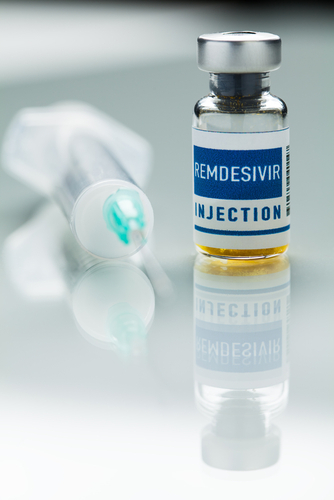
While the pursuit of treatments and vaccines for COVID-19 is ongoing, the U.S. Food and Drug Administration (FDA) announced a major milestone last week with the approval of the first treatment for the deadly disease: Gilead Sciences Inc.’s Veklury, also known as remdesivir.
The approval is restricted to use in hospitalized adult and pediatric patients that are at least 12 years old and weigh about 88 pounds. It can only be administered in a hospital or healthcare setting capable of offering acute care on the same level as inpatient hospital care.
In this regard, it is somewhat less robust than the Emergency Use Authorization Veklury had been working under since May 1, 2020. This owes to the fact that clinical trials assessing the safety and efficacy of the drug in patients younger than 12 years of age and those weighing less than 88 pounds are still underway. Still, given that more than 8.4 million people in the U.S. alone have been infected with COVID-19 since it first appeared, it represents a much-needed step forward.
“The FDA is committed to expediting the development and availability of COVID-19 treatments during this unprecedented public health emergency,” FDA Commissioner Stephen M. Hahn said. “Today’s approval is supported by data from multiple clinical trials that the agency has rigorously assessed and represents an important scientific milestone in the COVID-19 pandemic.”
The approval followed data acquired from three randomized, controlled clinical trials that included patients hospitalized with mild to severe cases of COVID-19.
The first of these trials examined 1,062 hospitalized subjects with mild, moderate, and severe cases and showed a statistically significant difference among those treated with Veklury against those given placebos. Their median time to recovery improved by five days, and their odds of improvement on day 15 were also higher. A second trial compared treatments for five days versus 10 days. Again, statistically significant improvements were seen in symptom recovery among the five-day group, but not the 10-day group, compared to those receiving only standard of care. The third and final trial, conducted on hospitalized adults with severe COVID-19 cases, again provided treatment for five days and 10 days. Still, no statistically significant differences in either recovery or mortality rates were observed.
For those considering taking the newly approved drug, side effects can include increased liver enzymes, indicating possible liver injury, allergic reactions, low blood oxygen level, fever, shortness of breath, wheezing, swelling, rashes, nausea, sweating, or shivering.




